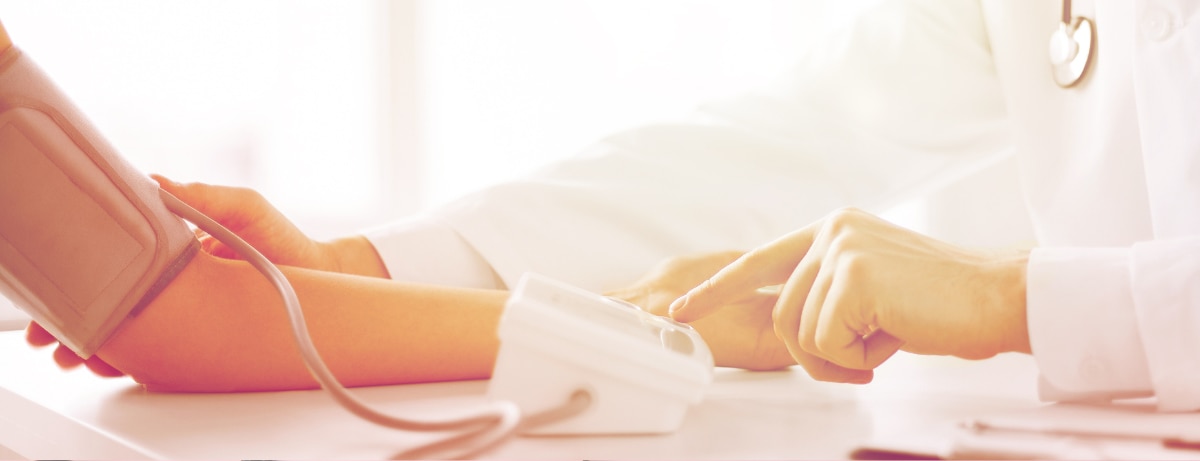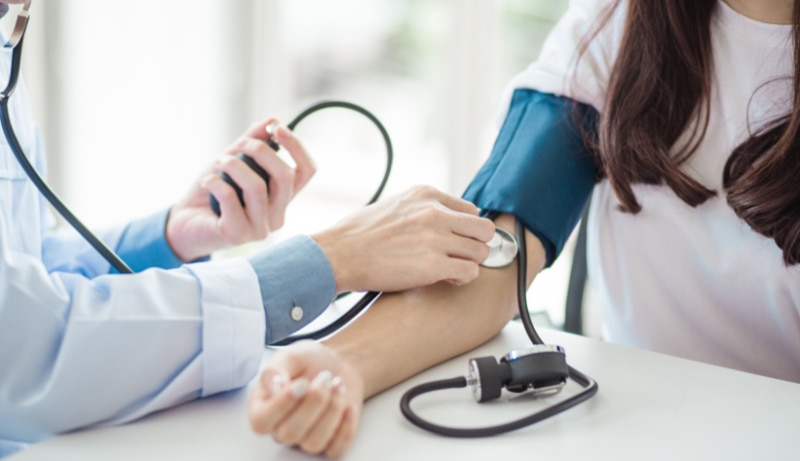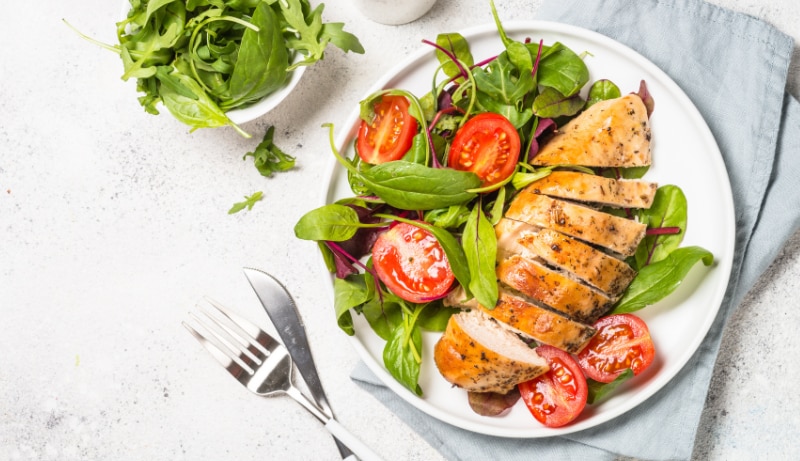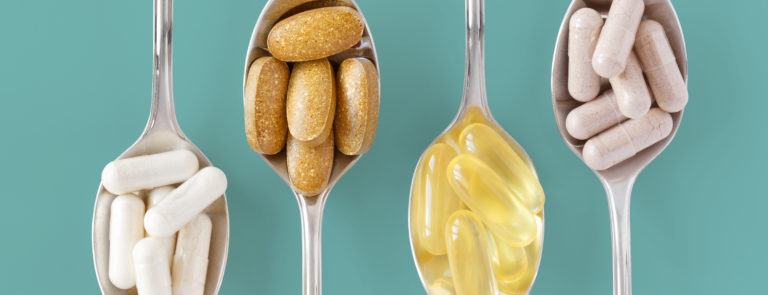15% off £35 OR 20% off £45
Signs of low blood pressure and what might help

From feeling dizzy to blurred vision and fainting - you know the signs of low blood pressure. But do you know why you have it and how to treat it? Are you experiencing dizziness or feeling lightheaded? Nausea, blurred vision, feeling weak and confused? These could all be signs that you may have low blood pressure – or hypotension.1,2
If you experience any of these symptoms regularly, it’s important to talk to your GP to understand the reasons behind these tell-tale low blood pressure signs. It could be there’s medication or lifestyle changes that could help.
You may be relieved to hear that a low blood pressure diagnosis is not in itself often cause for alarm. In fact, low blood pressure can even be seen as a good thing, as statistically you’re at lower risk of heart attack or stroke.3 But, if you experience the symptoms of low blood pressure persistently, you’ll know all too well how inconvenient and unpleasant the symptoms can be.
Very low blood pressure can be dangerous as it can mean that your body, brain and heart isn’t being supplied with enough oxygenated blood. It can also be an indicator of another medical condition. If you experience low blood pressure, you may want to know why you have it, and what you can do to help alleviate the symptoms.
First things first – what is low blood pressure?
First things first – what is low blood pressure?
Blood pressure is measured in ‘mmHg’, which stands for millimetres of mercury. Low blood pressure is a reading of less than 90/60mmHg.
The measurement looks like a fraction and represents the pressure inside your arteries created by blood moving around your body. The top part of the ‘fraction’ is systolic pressure – when your heart beats and pushes blood out into your arteries. The bottom part of the ‘fraction’ refers to diastolic pressure – when your heart is resting between beats.


If your blood pressure lies within the range between 90/60 and 120/80, you can be happy that you have a healthy blood pressure. High blood pressure is considered to be 140/90mmHg or higher, whilst low blood pressure is considered to be 90/60mmHg or lower.4
Low blood pressure of around 90/60 doesn’t normally cause any problems. You may have low blood pressure with no symptoms whatsoever. But if it drops too low, it can restrict the amount of blood flowing to your brain and other organs. This is what can cause you to feel faint and dizzy.
It’s when you start to experience these unpleasant symptoms that low blood pressure becomes a problem.
Why do I have low blood pressure?
As you’d probably expect, there’s a host of potential reasons for low blood pressure. For example, your level of fitness, your genes and diet and the amount you’ve been drinking. Even the time of day can make a difference. Sometimes it’s just the way it is. Or it may be down to a health condition or medication you could be taking.5,6
Talk to your GP and see if you can get to the bottom of the reasons for your low blood pressure. You’ll then have a clearer idea about what, if anything you can or should do to help manage the symptoms.
7 simple ways to help reduce low blood pressure
Most treatments for low blood pressure rely upon managing symptoms with diet and lifestyle choices. Your GP should be able to help guide you on how to raise your low blood pressure safely and effectively. They may recommend simple steps including:
- Watch what you eat
From green veg, to vitamin B12 and super cereals, diet is an important factor in helping regulate blood pressure. You could even enjoy tucking in to a traditional tuck shop treat – research suggests that eating small amounts of liquorice can help increase blood pressure. Increasing salt slightly can also offer similar benefits.


- Start grazing
Swap large meals for smaller, more frequent portions throughout the day. This is especially relevant if you experience postprandial hypotension and typically have symptoms after a meal.7
- Stay seated
Don’t rush to get up from the table after a meal. After you’ve eaten, blood heads to your stomach to help with digestion. Give your body time to readjust and your blood to return to your system.8
- Drink up
Make sure you drink plenty of fluid to keep your body hydrated. It’s best to avoid caffeine and stick to water, or herbal or decaffeinated drinks. And of course, if you drink alcohol, make sure you don’t exceed the recommended daily amount.9
- Stand up slowly
Especially when getting out of bed when you first wake up. Postural hypotension is when you get low blood pressure symptoms when you sit up or stand, so it’s important to be aware of how this affects you. You could even try doing gentle exercise or stretching in bed to help your circulation before you get up.10
- Avoid very hot baths
It can be tempting to relax in a lovely hot tub, but the heat can cause your arteries to dilate and lower your blood pressure even further.
- Wear compression support stockings
To help get the blood flowing and improve blood circulation.11
Summary: Can I self-treat my low blood pressure?
When you’ve spoken with your GP and understand the reasons why you’re experiencing symptoms, you can start taking proactive steps to help alleviate your low blood pressure symptoms safely and naturally.
- https://www.nhs.uk/conditions/low-blood-pressure-hypotension/
- http://www.bloodpressureuk.org/BloodPressureandyou/Thebasics/Whatislow
- http://www.bloodpressureuk.org/BloodPressureandyou/Thebasics/Whatislow
- https://www.nhs.uk/common-health-questions/lifestyle/what-is-blood-pressure/
- http://www.bloodpressureuk.org/BloodPressureandyou/Thebasics/Whatislow;
- https://www.bhf.org.uk/informationsupport/heart-matters-magazine/medical/ask-the-experts/low-blood-pressure
- https://www.nhsinform.scot/illnesses-and-conditions/heart-and-blood-vessels/conditions/low-blood-pressure-hypotension#treating-low-blood-pressure
- https://www.health.harvard.edu/heart-health/eating-can-cause-low-blood-pressure
- https://www.nhs.uk/conditions/low-blood-pressure-hypotension/
- https://www.nhsinform.scot/illnesses-and-conditions/heart-and-blood-vessels/conditions/low-blood-pressure-hypotension#treating-low-blood-pressure
- https://www.nhs.uk/conditions/low-blood-pressure-hypotension/













